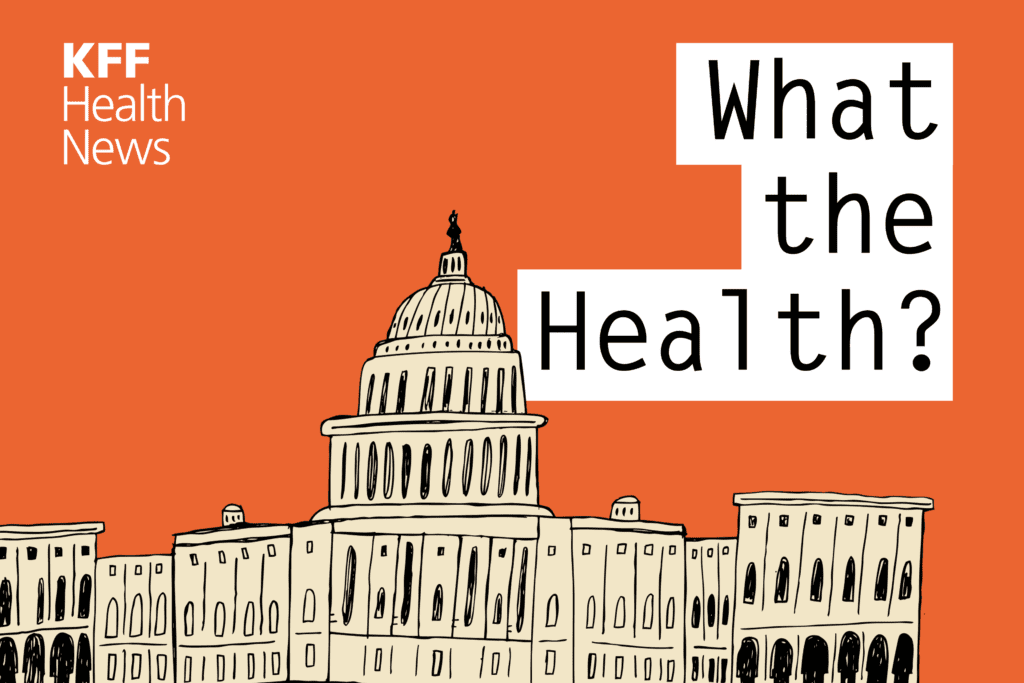KFF Health News' 'What the Health?': Underinsured Is the New Uninsured

The Host
The annual U.S. Census Bureau report this week revealed a drop in the uninsured rate last year as more working-age people obtained employer coverage. However, this year’s end of pandemic-era protections — which allowed many people to stay on Medicaid — is likely to have changed that picture quite a bit since. Meanwhile, reports show even many of those with insurance continue to struggle to afford their health care costs, and some providers are encouraging patients to take out loans that tack interest onto their medical debt.
Also, a mystery is unfolding in the federal budget: Why has recent Medicare spending per beneficiary leveled off? And the CDC recommends anyone who isat least 6 months old get the new covid booster.
This week’s panelists are Emmarie Huetteman of KFF Health News, Margot Sanger-Katz of The New York Times, Sarah Karlin-Smith of the Pink Sheet, and Joanne Kenen of the Johns Hopkins Bloomberg School of Public Health and Politico.
Among the takeaways from this week’s episode:
The Census Bureau reported this week that the uninsured rate dropped to 10.8% in 2022, down from 11.6% in 2021, driven largely by a rise in employer-sponsored coverage. Since then, pandemic-era coverage protections have lapsed, though it remains to be seen exactly how many people could lose Medicaid coverage and stay uninsured.
A concerning number of people who have insurance nonetheless struggle to afford their out-of-pocket costs. Medical debt is a common, escalating problem, exacerbated now as hospitals and other providers direct patients toward bank loans, credit cards, and other options that also saddle them with interest.
Some state officials are worried that people who lose their Medicaid coverage could choose short-term health insurance plans with limited benefits — so-called junk plans — and find themselves owing more than they’d expect for future care.
Meanwhile, a mystery is unfolding in the federal budget: After decades of warnings about runaway government spending, why has spending per Medicare beneficiary defied predictions and leveled off? At the same time, private insurance costs are increasing, with employer-sponsored plans expecting their largest increase in more than a decade.
And the push for people to get the new covid booster is seeking to enshrine it in Americans’ annual preventive care regimen.
Email Sign-Up
Plus, for “extra credit,” the panelists suggest health policy stories they read this week that they think you should read, too:
Emmarie Huetteman: KFF Health News’ “The Shrinking Number of Primary Care Physicians Is Reaching a Tipping Point,” by Elisabeth Rosenthal.
Sarah Karlin-Smith: MedPage Today’s “Rural Hospital Turns to GoFundMe to Stay Afloat,” by Kristina Fiore.
Joanne Kenen: ProPublica’s “How Columbia Ignored Women, Undermined Prosecutors and Protected a Predator for More Than 20 Years,” by Bianca Fortis and Laura Beil.
Margot Sanger-Katz: Congressional Budget Office’s “Raising the Excise Tax on Cigarettes: Effects on Health and the Federal Budget.”
Also mentioned in this week’s episode:
To hear all our podcasts, click here.
And subscribe to KFF Health News’ “What the Health?” on Spotify, Apple Podcasts, Pocket Casts, or wherever you listen to podcasts.
Related Topics
Contact Us
Submit a Story Tip




